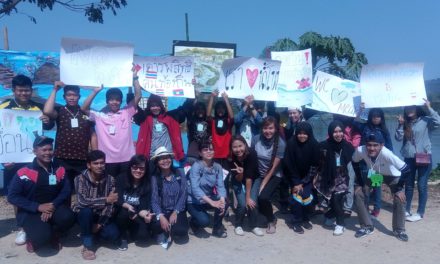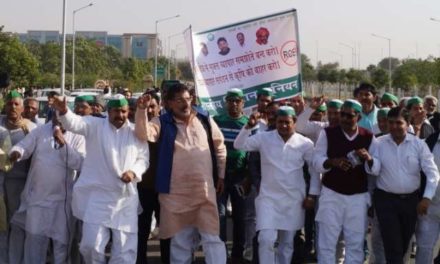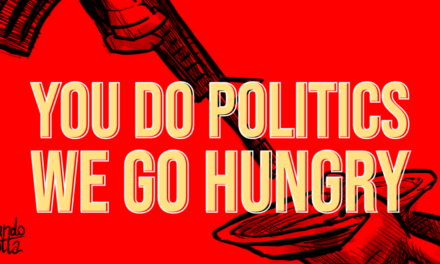This editorial was published in The Hindustan Times, January 10, 2003
The just-concluded Asian Social Forum (ASF) saw a unique confluence of grassroots social movements, people’s organisations and radical NGOs which interrogate globalisation and counterpose equality, human rights and justice to the shop-worn agendas of transnational big business.
Even for a city of contrasts (consider Nizamshahi or information technology vs abject poverty or child labour), what Hyderabad witnessed this past week was unparalleled: on the one hand, a ‘global partnership’ summit of the Confederation of Indian Industry caucusing in a five-star hotel; and on the other, the Asian Social Forum, with 15,000 activists from all over the continent celebrating the spirit of solidarity in the Nizam College grounds.
The first event was dominated by a select group of dark-suited business potentates, foreign officials and Indian ministers from L.K. Advani downwards. The second was a riot of colours and a melange: of grassroots campaigners on livelihood issues and human rights, environmentalists and feminists, trade unionists and seed-conserving peasants, people’s science-movement and healthcare activists, peaceniks and anti-displacement campaigners, writers and social scientists, radical theatre-people and filmmakers.
The first group came from leading corporations in India and the West, known for their successful brands and fat profit-lines; the second from the North-east, Asia and Afghanistan, Palestine and Pakistan, Sri Lanka and Southeast Asia, as well as India. It comprised people known for their work against foreign military bases and occupation, for freedom from debt, for the right to food and free speech, for human security.
It is a telling commentary that when 400 volunteers from the second group peacefully picketed the venue of the first, they were arrested by the police of India’s most business and IT-savvy chief minister.
The ASF began with a plenary addressed by firebrand activist Medha Patkar and ended with one presided over by former President K.R. Narayanan. Between the two were eight major conferences, 160 seminars, 164 workshops, scores of cultural events – and countless processions, demonstrations and tableaux. This sums up the awesome range and scope of the ASF and its rainbow- coalition character better than anything else.
The common theme running through these was grassroots democracy, the fight against exclusion, the imperatives of equality, global justice, human emancipation and people-(not profit)-centred development. In one line, the message was: the anti-globalisation movement is here, and for real!
The ASF is part of the great global justice movement that began at Seattle in 1999, and took an organised expression through the World Social Forum’s meetings in Porto Alegre, Brazil, with the slogan “Another world is possible!”
The global justice movement is one of the most spectacular mass mobilisations of our times. The WSF is a powerful forum of interaction between social activists and the liberal-progressive intelligentsia. The movement has shaken the leaders of global capital and its managerial institutions (the World Bank, IMF, G-8, OECD, etc).
But the ASF’s own roots lie in the Asian soil, in the numerous movements which have grown over the past quarter-century or more in the continent – for survival with dignity, for peace, gender equality, decentralisation, for direct democracy, Dalit rights, for ecologically sound development and social liberation. These movements have reshaped societies from South Korea to Nepal, geopolitics from the Persian Gulf to the Malacca Straits and development policies from Japan to the Philippines.
India occupies a special place here. As the great historian E.P. Thompson would say, India has witnessed an avalanche of people’s movements and civil society initiatives like few other countries have. India is also the site of especially lively, organic, two-way interaction between popular movements and the radical intelligentsia.
However, there was a disproportionate number of Indians at this ‘Asian’ event: only 780 of the 14,426 registered participants came from abroad. One reason for this is that New Delhi cussedly delayed granting visas to hundreds of delegates. The worst example of this was the systematic deletion (by [Deputy Prime Minister] Advani himself) of well-known Pakistani activists’ names from the almost- approved list, including Asma Jehangir, Pervez Hoodbhoy, I.A. Rahman and A.H. Nayyar. Ironically, they happen to be among the staunchest and best-known critics of Islamabad’s hawkish policies – a point that couldn’t have been missed by New Delhi’s own hawks!
A valid criticism of the ASF programme is that it was far too India- (or India-Pakistan) -centric. Another is that the ASF workshops were so physically dispersed (which Indian city can accommodate 15,000 people in multiple conference centres located close to one another?) as to lack connectedness and a centre of gravity. Yet, the ASF was a tremendous learning process.
It is hard to summarise the rich diversity of its deliberations – stretching from the sharing of experiences of different struggles against neoliberal economics and privatisation of natural resources, and for the defence of livelihoods, to drawing up alternative perspectives and programmes.
The ASF uniquely offered four platforms: the first-ever large-scale interaction between India’s established mass organisations and its ‘New Social Movements’, a dialogue between them and movements from the rest of Asia, a forum to evolve common analysis and strategy, and a high-energy cultural intercourse that took on the appearance of a gigantic mela, a week-long festival celebrating some of the greatest causes of our times.
The ASF was a landmark event, an exhilarating beginning. It needs to be followed up – both through further dissemination of its core-ideas to grassroots levels, and laterally, through replication elsewhere, even as the Porto Alegre process maintains its own integrity and distinct identity. One sign of a great social movement is the variety of messages and appeals it contains, and the many organisational forms it can assume. Going by that criterion, the movement against unequal globalisation, and for a just world, has a great future – not least in Asia.
* Praful Bidwai is a prominent Indian journalist, commentator and anti-nuclear campaigner.







![[IN PHOTOS] In Defense of Human Rights and Dignity Movement (iDEFEND) Mobilization on the fourth State of the Nation Address (SONA) of Ferdinand Marcos, Jr.](https://focusweb.org/wp-content/uploads/2025/07/1-150x150.jpg)

